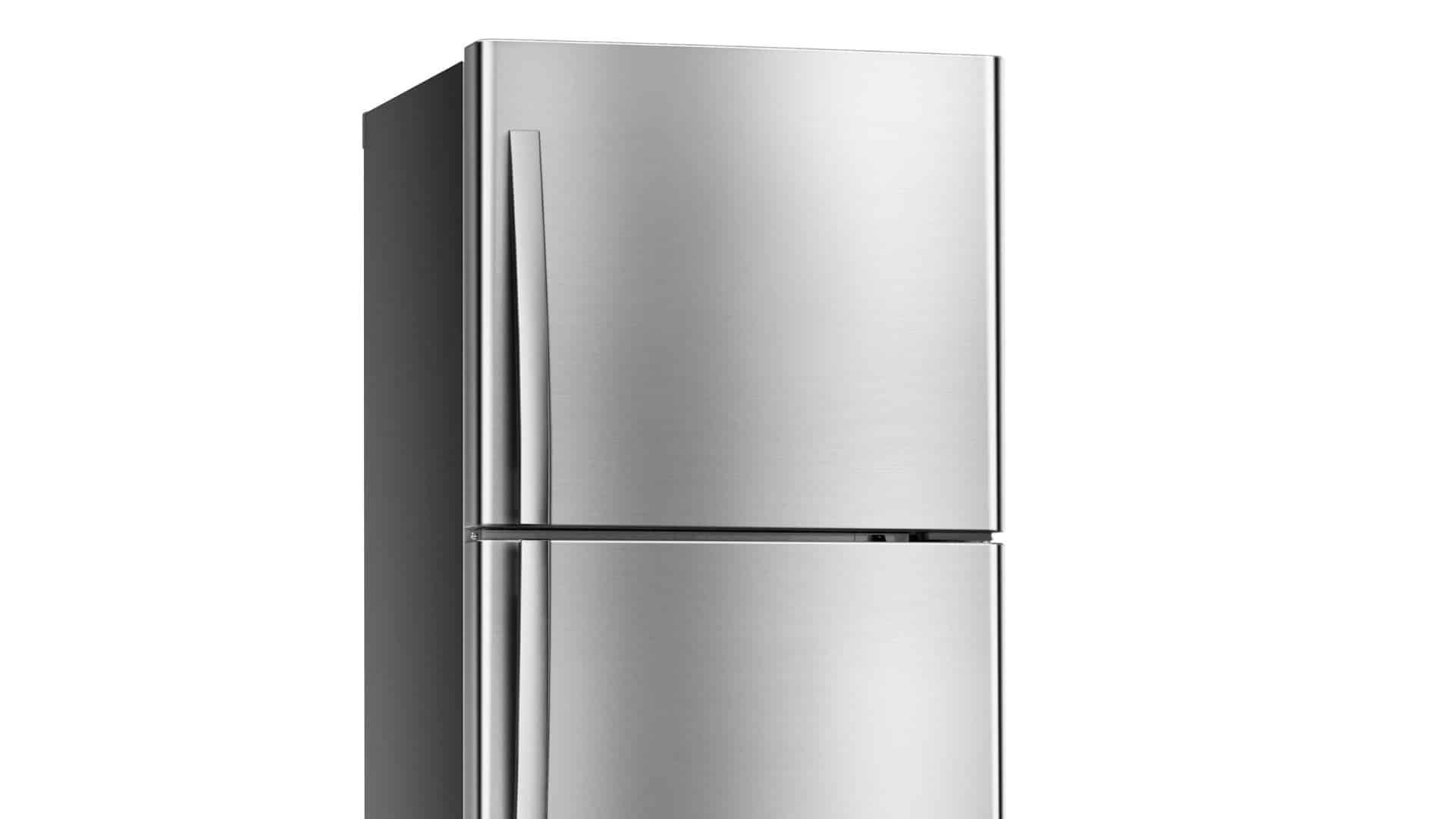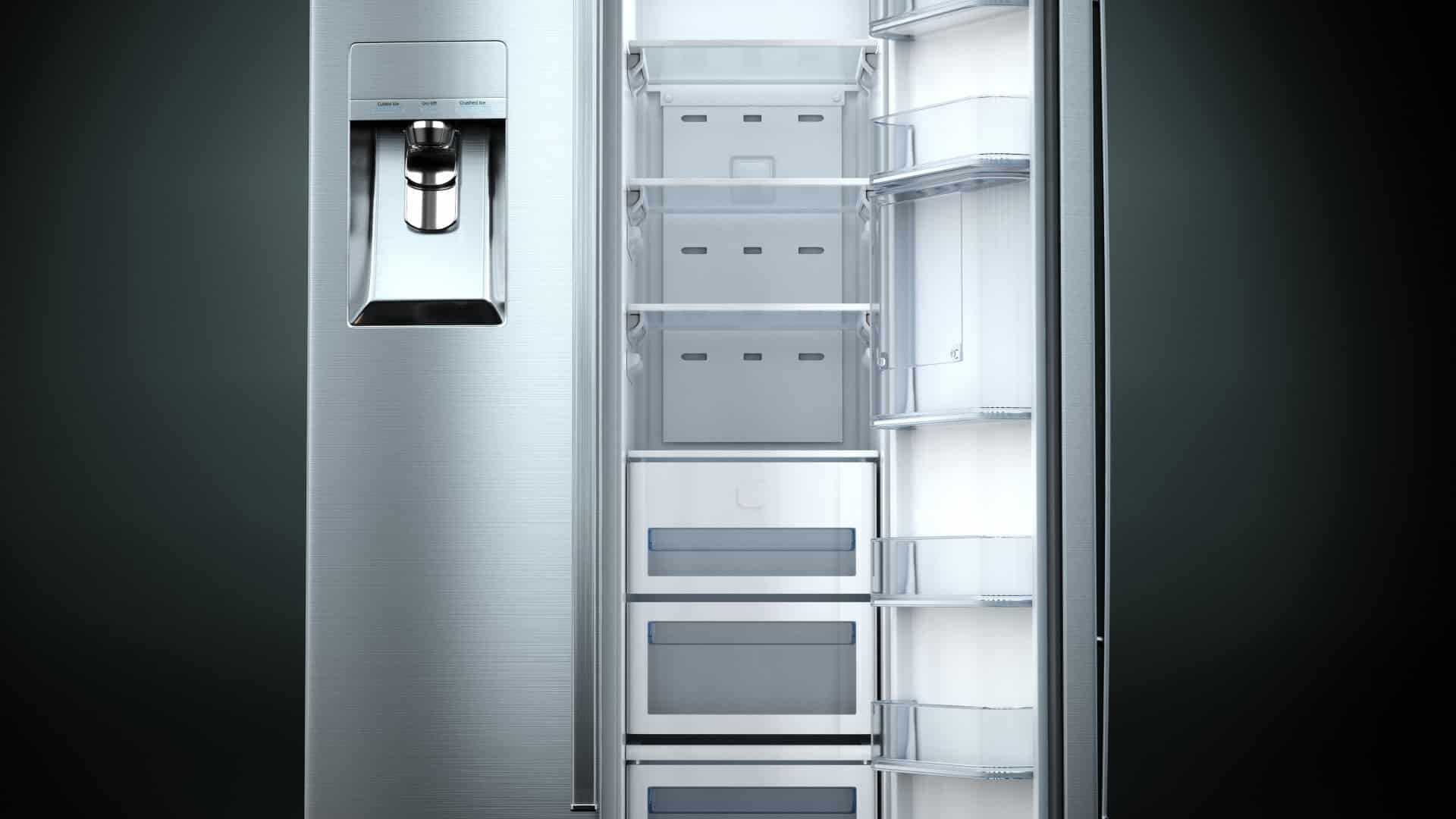
GE fridges are known for their reliability and smooth operation, but even the most trustworthy brands can sometimes have issues. If your fridge suddenly starts to make a loud humming noise, it isn’t just annoying—it’s worrying! Does it signify a serious problem? Does it mean your fridge needs replacing? Could it even potentially be dangerous?
Thankfully, many of the issues that can cause your refrigerator to make a humming noise are not too tricky to fix, even for a novice DIYer. Read on to find out the main causes of a loud humming noise in your GE fridge, and what you should do about it.
This guide covers all major models of GE fridge, including:
1993LPO
90280JC
90280JD
90280JE
90280JF
90288JC
90288JD
90288JE
GSH25JSDD SS
GSH25JSRFSS
GSH25JSTASS
GSL25JFPABS
GSL25JFTABS
GSS20IEMBWW
GTH18GBDCRWW
GTH18GBDDRWW
GTH18GBDERWW
GTS18FBSARWW
PSI23SGNAFBS
PSS25SGNABS
PSS26SGPASS
General tips before you start
- Always unplug your refrigerator before starting.
- Use your GE manual to help you locate the part you need to check, as these can vary based on which model you have.
- If you need to order a replacement part, you can do so online.
- If you feel out of your depth, call in a professional.
Refrigerator too close to the wall
Let’s start out with the easy fixes. If your GE refrigerator has suddenly started making a loud humming noise, and you’ve recently moved it to clean or retrieve something from behind it, then the position of your fridge could be at fault.
If the refrigerator is touching the wall or another appliance such as the dishwasher, then the usually silent vibrations made by the cooling process can start to sound pretty loud. To fix this issue, ensure your refrigerator has at least an inch of space between it and the wall or any other appliance.
Loose or vibrating parts
Another easy fix, this one is often caused by shelves that are put back incorrectly after a deep clean of your refrigerator. Refrigerator shelves, trays, and compartments should be held firmly in place, and if one is loose, it can cause a humming noise as it vibrates. Check to make sure all the loose internal parts of your fridge are held tightly in place, and if not, make sure to set them back in firmly.
Aging or malfunctioning compressor
The compressor is a vital component of the refrigerator’s cooling system, and over time, its efficiency may decrease due to wear and tear or internal damage. This can result in increased vibration and noise levels, including a loud humming sound.
In most cases, when a compressor is deemed faulty, you need to have it replaced rather than repaired. The process of replacing a compressor involves handling refrigerants, which requires EPA certification, and working with high-voltage electrical components, posing a risk to those unfamiliar with the procedures.
Obstructed condenser fan motor
A common cause of a loud humming noise is that the condenser fan motor is obstructed. If this is your issue the noise will be coming from the bottom of your refrigerator. To fix this, follow these steps:
- Locate the condenser fan at the bottom of the fridge.
- Remove the access panel to expose the condenser fan and motor.
- Inspect the fan for visible damage or debris. If the fan is obstructed, clean it before proceeding.
- Disconnect the fan motor, including wiring and any mounting screws or clips that secure it in place.
- Carefully extract the faulty motor from the refrigerator.
- Purchase a replacement motor. You’ll be able to get a compatible part online.
- Install the new motor and reconnect the wiring.
- Reinstall the rear access panel and plug in the refrigerator.
Obstructed evaporator fan motor
- Locate the evaporator fan: Find the fan behind the freezer’s back panel.
- Remove the panel: Unscrew or unclip the panel to access the fan.
- Inspect the fan: Check for debris, ice buildup, or other obstructions.
- Clean the fan: Remove debris gently with a brush or cloth, and defrost any ice using a hairdryer on low heat.
- Test the fan: Spin the fan manually, ensuring it rotates freely.
- Check the motor: If the fan doesn’t spin freely, inspect the motor for damage and consider replacement if necessary.
- Reassemble: Reinstall the back panel and plug in the refrigerator.
Malfunction with the automatic defrost
A humming noise caused by a problem with your GE refrigerator’s automatic defrost system could be related to the defrost timer, defrost heater, or the defrost thermostat. To fix this issue, follow these steps:
- Unplug the refrigerator.
- Find the defrost timer, usually in the control panel, behind the fridge, or at the bottom. Test the timer with a multimeter and replace it if it’s faulty.
- Locate the defrost heater in the freezer compartment, usually near the evaporator coils. Remove any necessary panels to access it. Test the heater using a multimeter for continuity. If the heater is faulty, replace it.
- Inspect the defrost thermostat. Test the thermostat using a multimeter for continuity while it’s cold (below 32 degrees Fahrenheit). Replace it if it’s not functioning correctly.
- Once you’ve fixed the faulty component, reinstall any panels you removed during the process and plug in the refrigerator.
Worn or damaged seals
Worn or damaged seals in a GE fridge usually do not directly cause a humming noise. However, if the seals are not functioning properly, they can indirectly contribute to the noise. Damaged seals can allow warm air to enter the refrigerator and cold air to escape, forcing the compressor to work harder and sometimes create loud noises.
Excess frost and ice buildup
Poorly sealing doors can lead to frost and ice buildup inside the freezer and around the evaporator fan. This can cause the fan to make noise while operating, such as a humming or buzzing sound.
If you suspect that worn or damaged seals are contributing to a humming noise in your GE fridge, inspect the seals for damage, wear, or debris. Clean them with mild detergent and warm water, and replace them if necessary to ensure a proper seal.
Problem with the ice maker
If you’ve gone through our list and still weren’t able to solve the noise, you might want to check out your ice maker. Some common ice maker-related issues that may produce a humming noise include:
Faulty ice maker motor
A malfunctioning motor in the ice maker can create a humming or buzzing noise during operation. If this is the issue you’ll need to replace the part.
Obstructed ice maker fan
The ice maker may have its own fan, and debris or ice buildup around the fan can cause a humming noise. If this is the issue, try defrosting it by using a hairdryer.
Stuck or jammed ice
Ice may become stuck or jammed in the ice maker mechanism, creating a noise when the ice maker tries to cycle. Defrosting with a hair dryer is also a good fix for this issue.
Water valve issues
A faulty water inlet valve can produce a humming noise as it struggles to control the water flow to the ice maker. Replacing the part is usually the only course of action in this case.
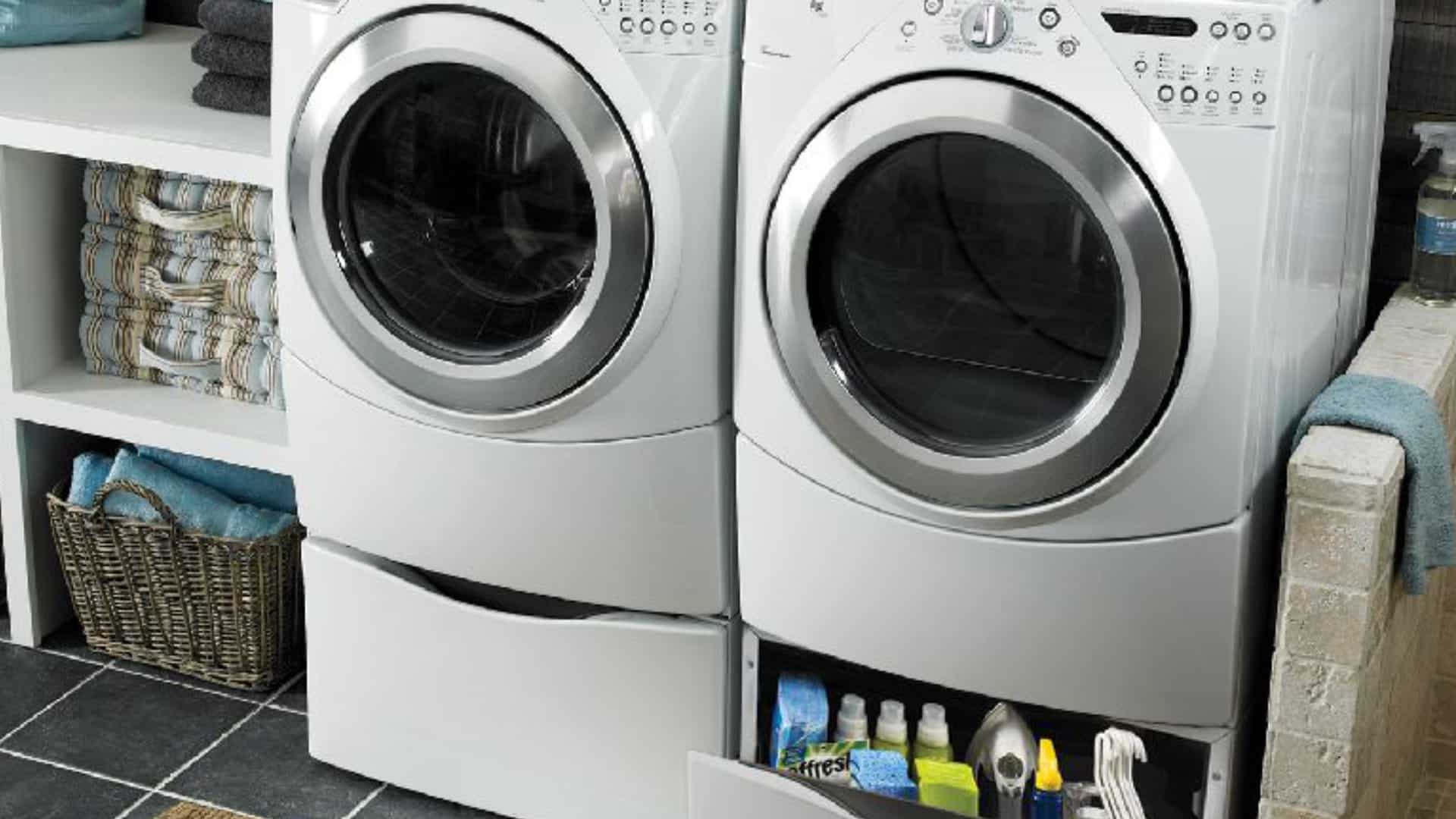
How to Fix the Whirlpool Washer F9 E1 Error Code
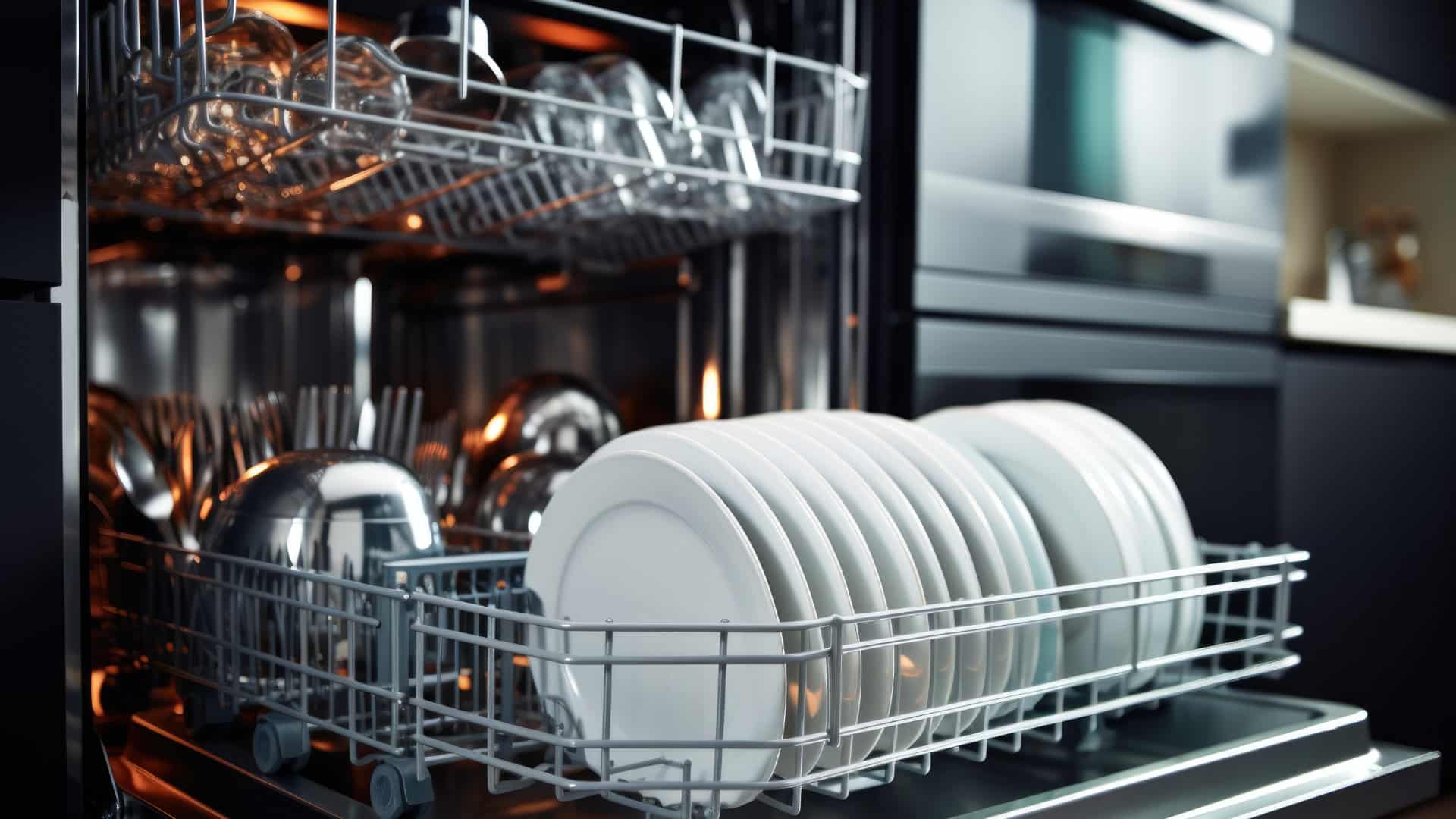
How to Solve Frigidaire Dishwasher Lights Blinking

Resolving the LG Washer UE Error Code (3 Easy Fixes)
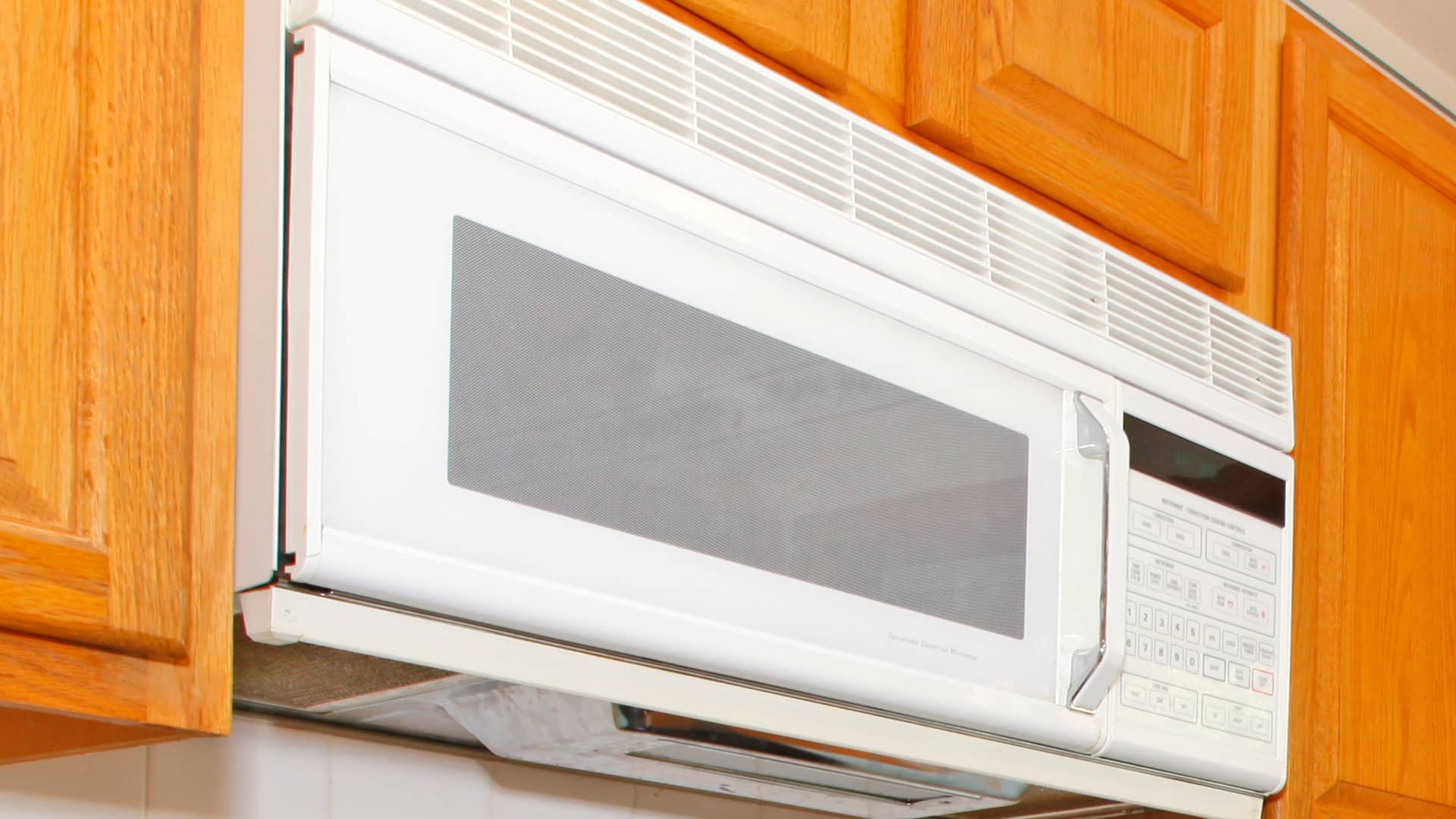
Replacing an Over-the-Range Microwave with a Range Hood
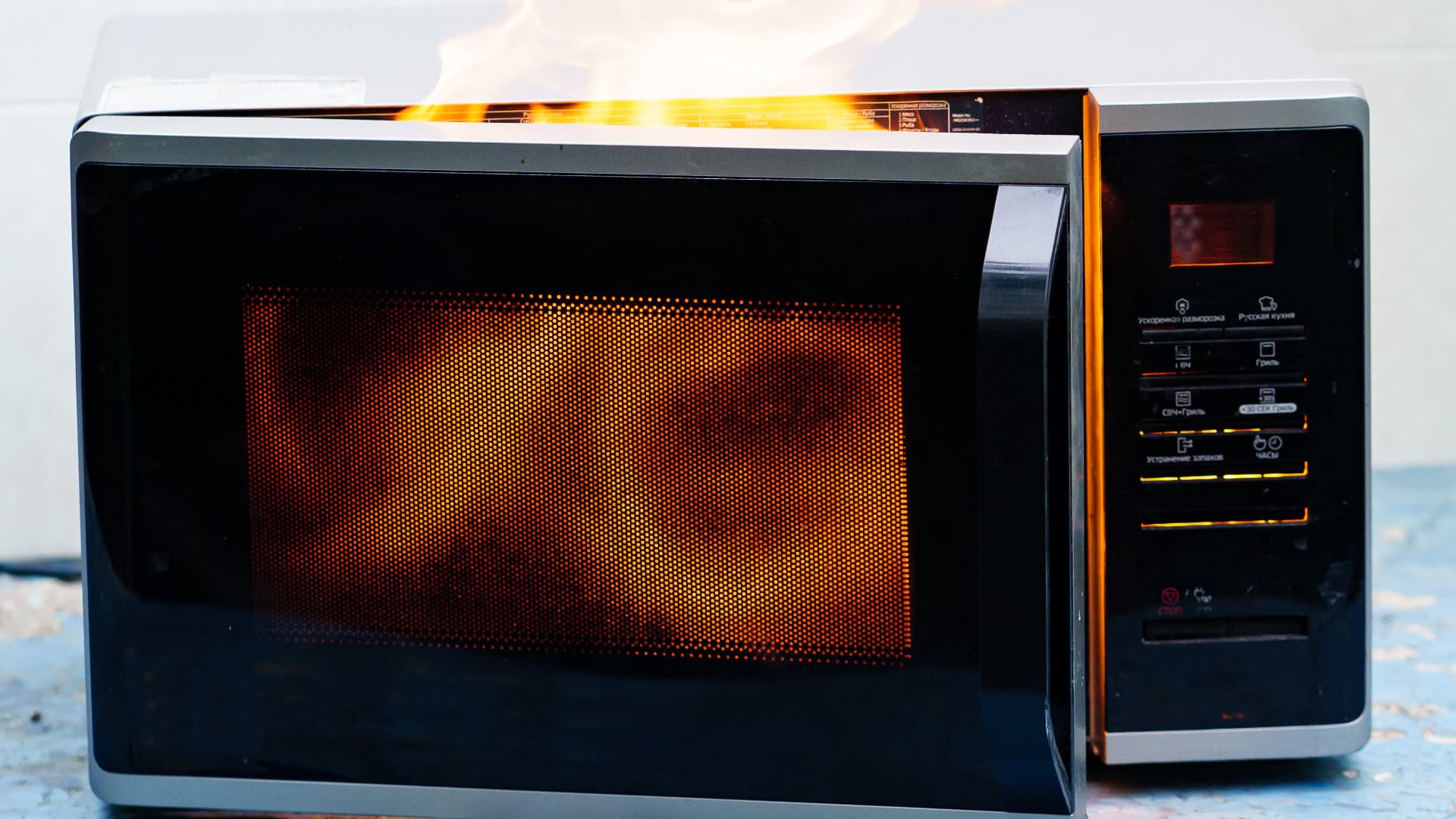
How to Get Burnt Smell Out of Microwave (In 2 Easy Steps)
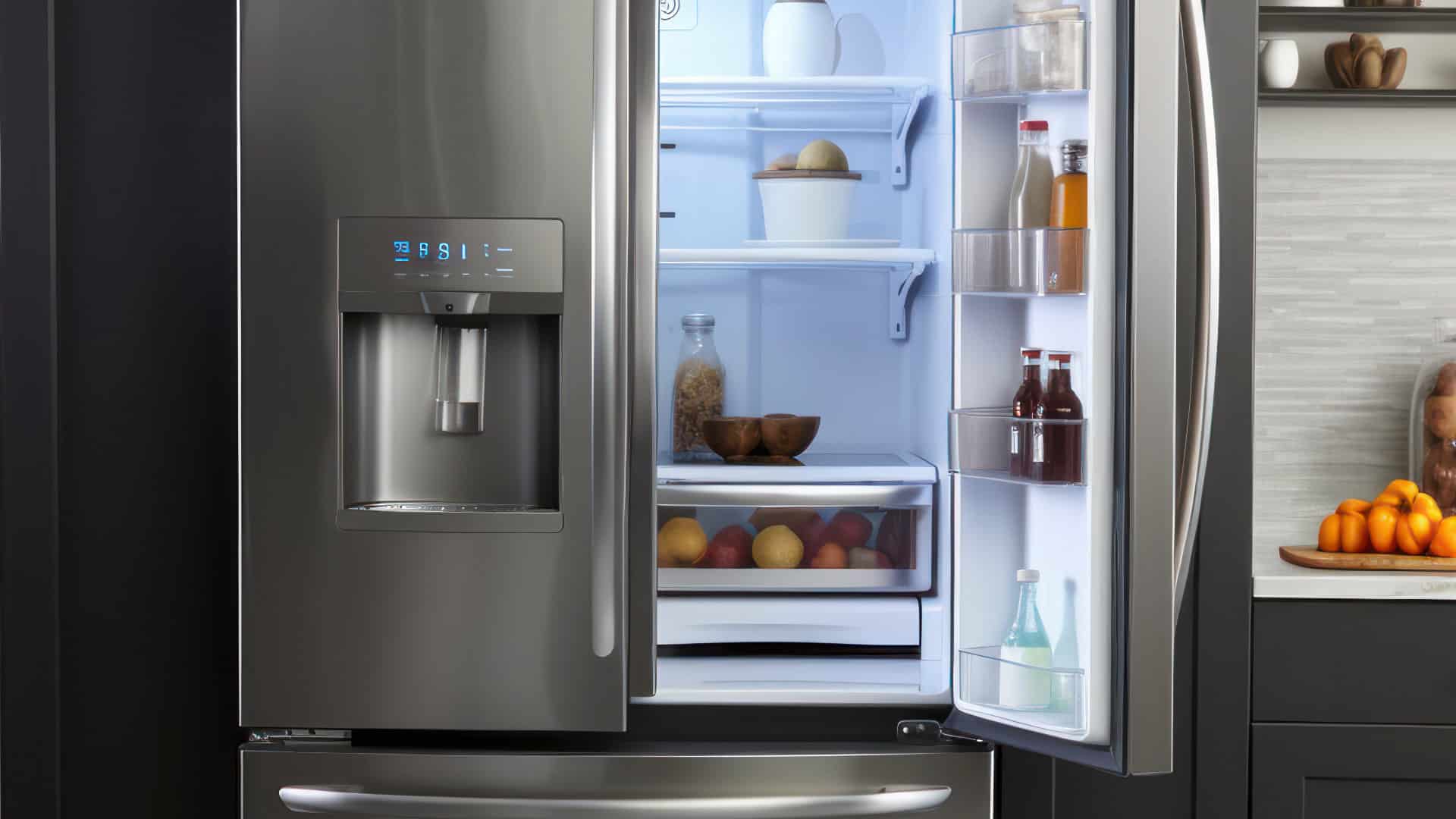
7 Reasons Why Your Bosch Ice Maker Is Not Working
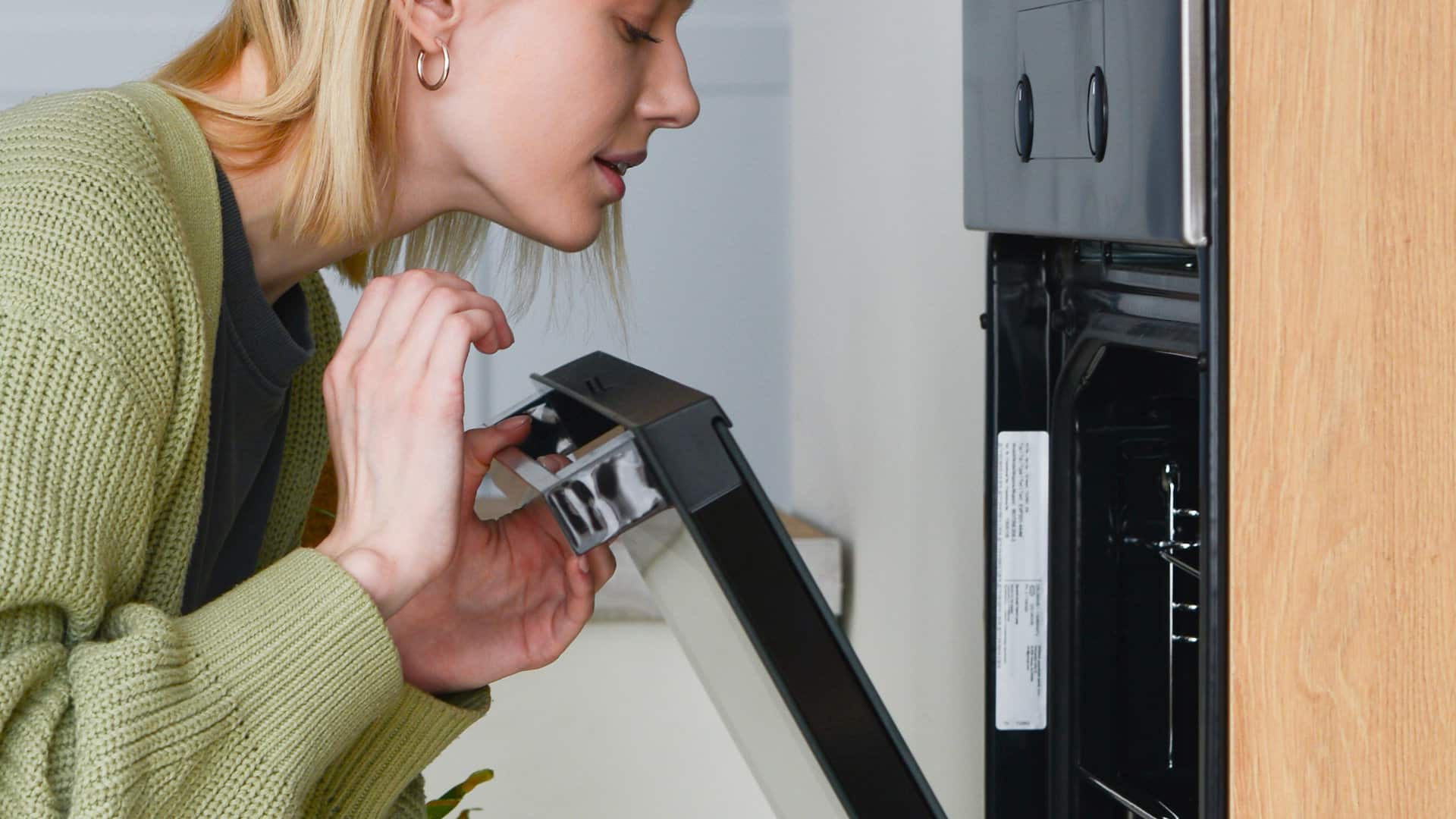
Why Does Your Self-Cleaning Oven Smell?
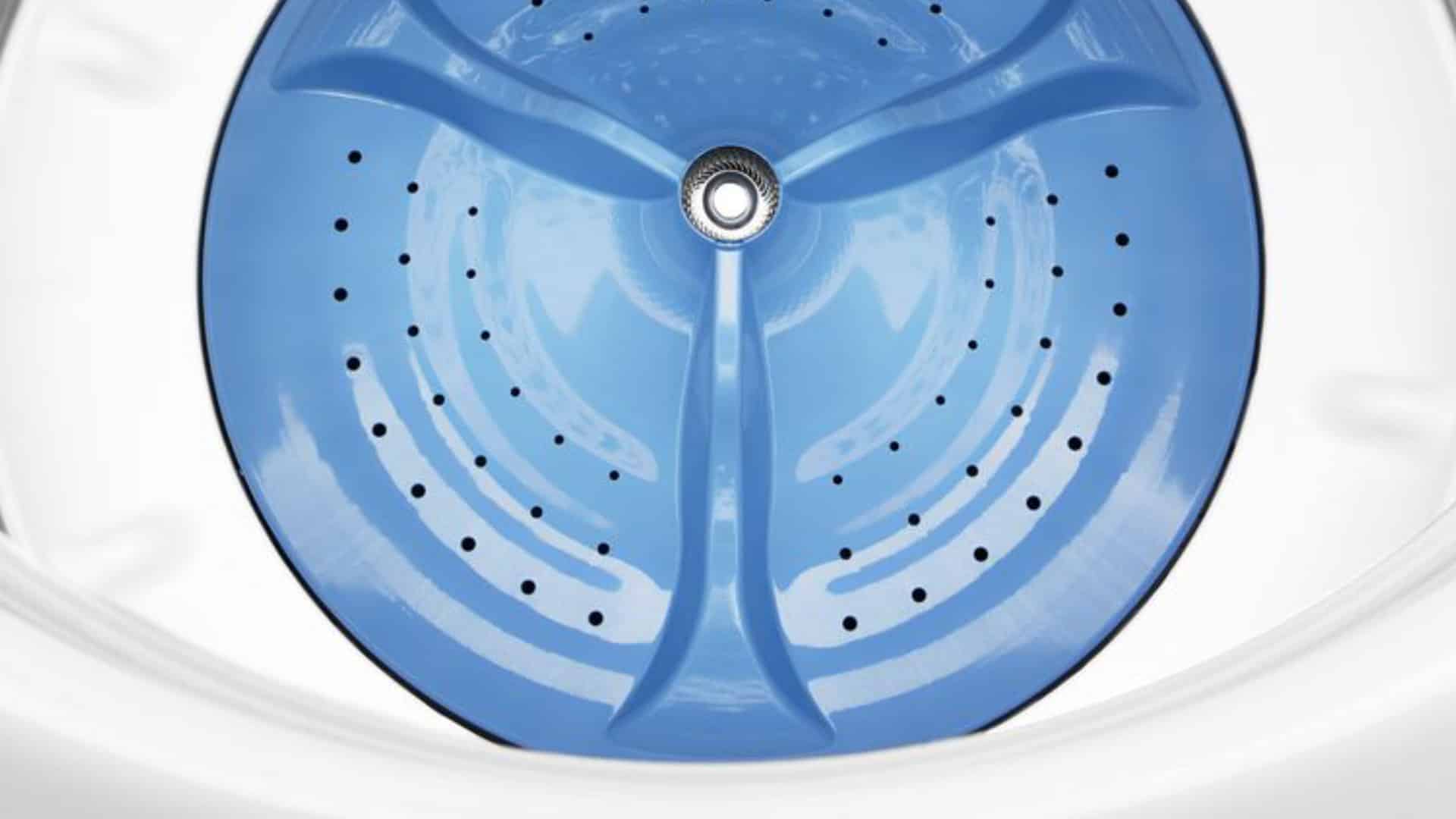
Why Is Your Whirlpool Cabrio Washer Not Spinning?
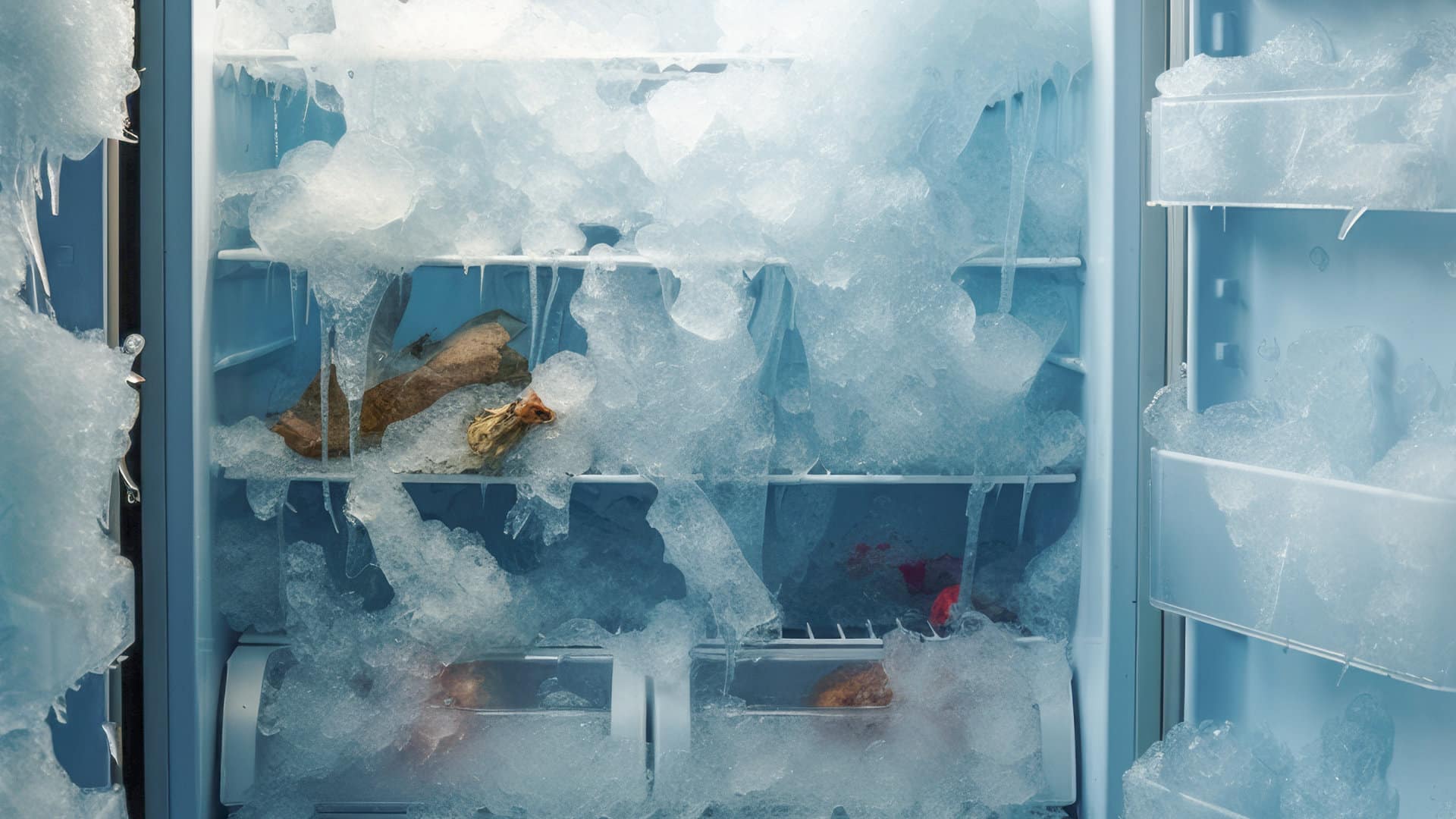
Why Does My Refrigerator Make Noise?
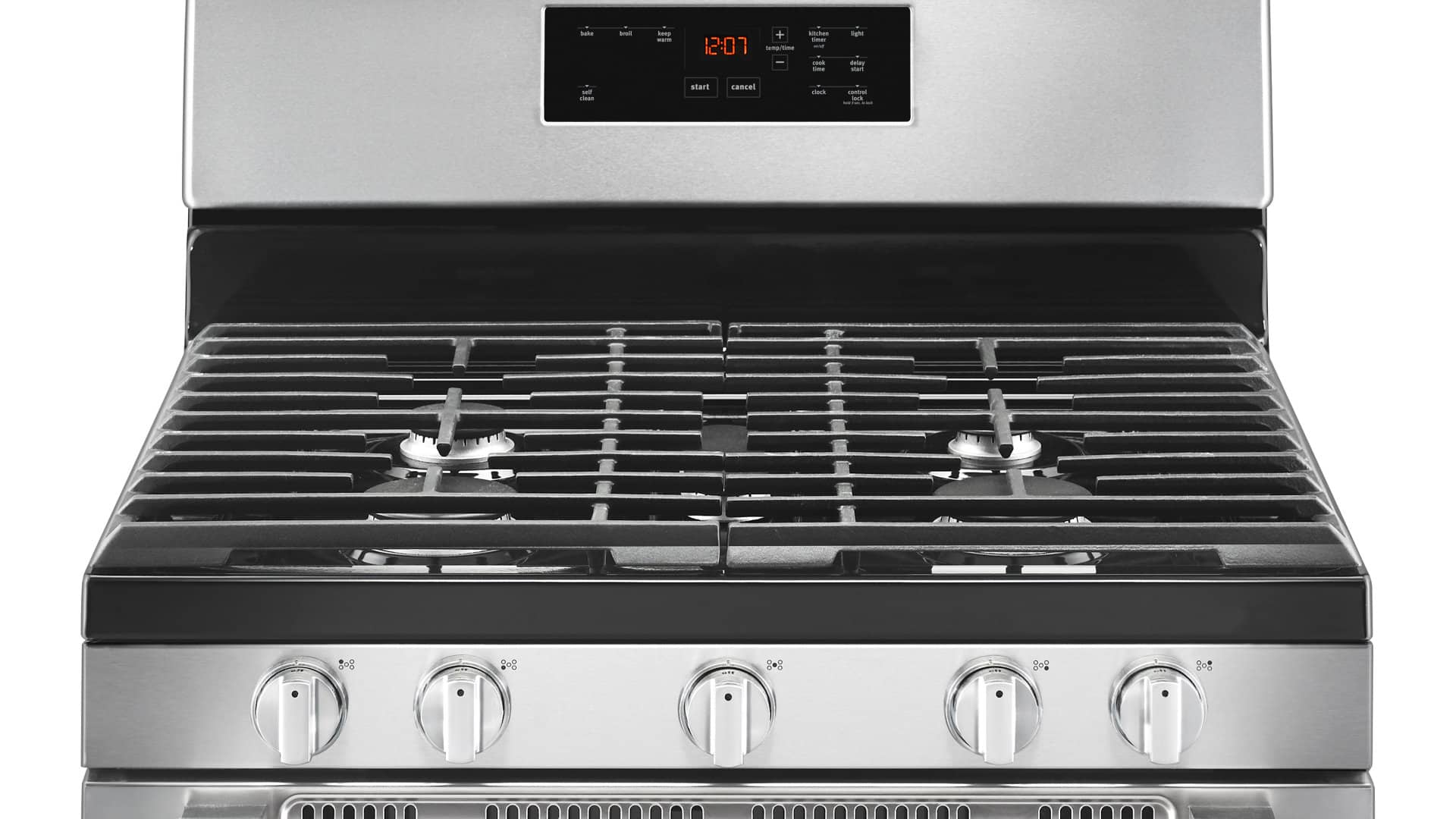
Troubleshooting the F2 Error Code on a Whirlpool Oven
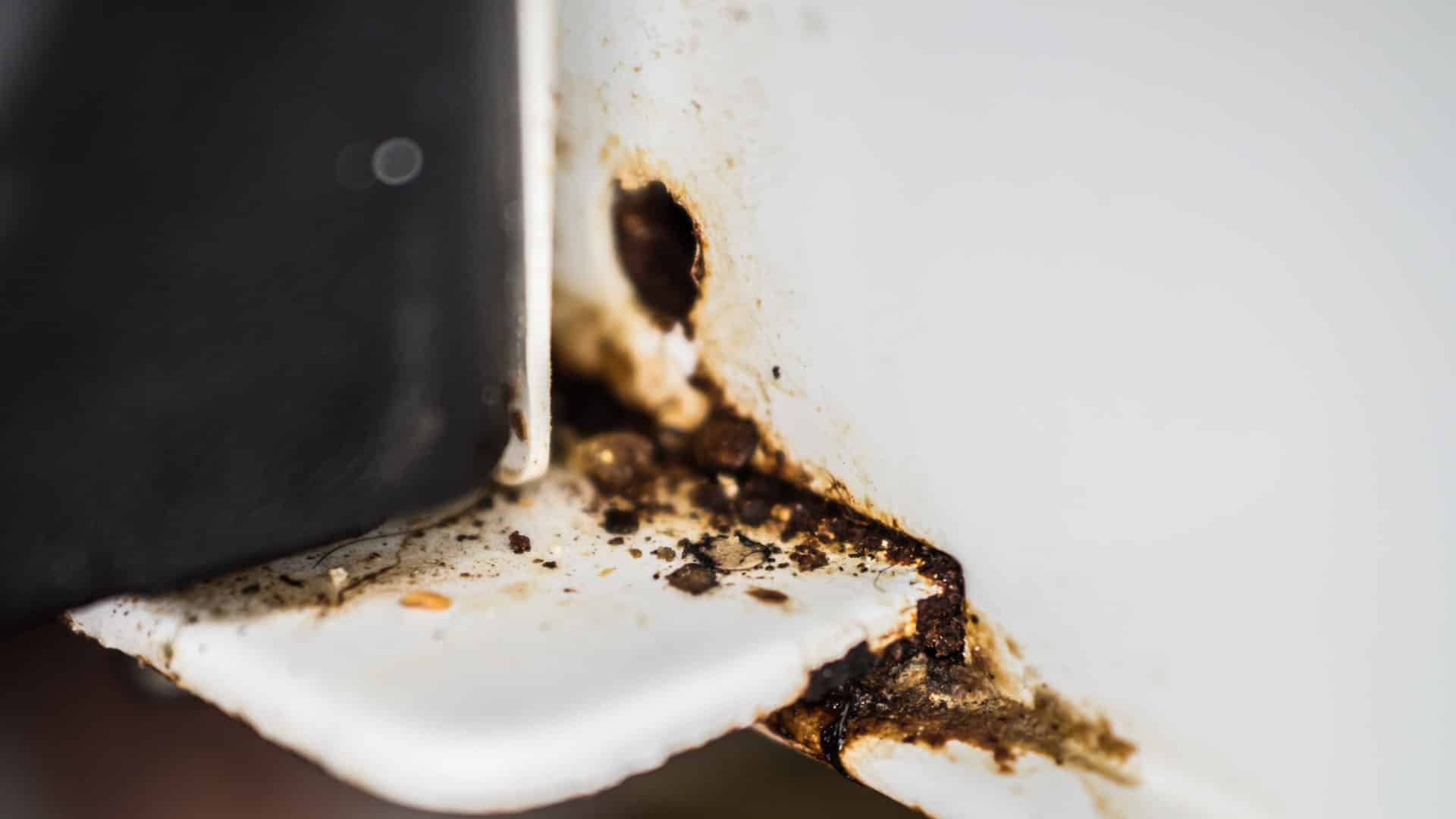
Rust Inside Microwave: Causes, Fixes, and Prevention Tips

4 Ways to Get Smell Out of Dishwasher
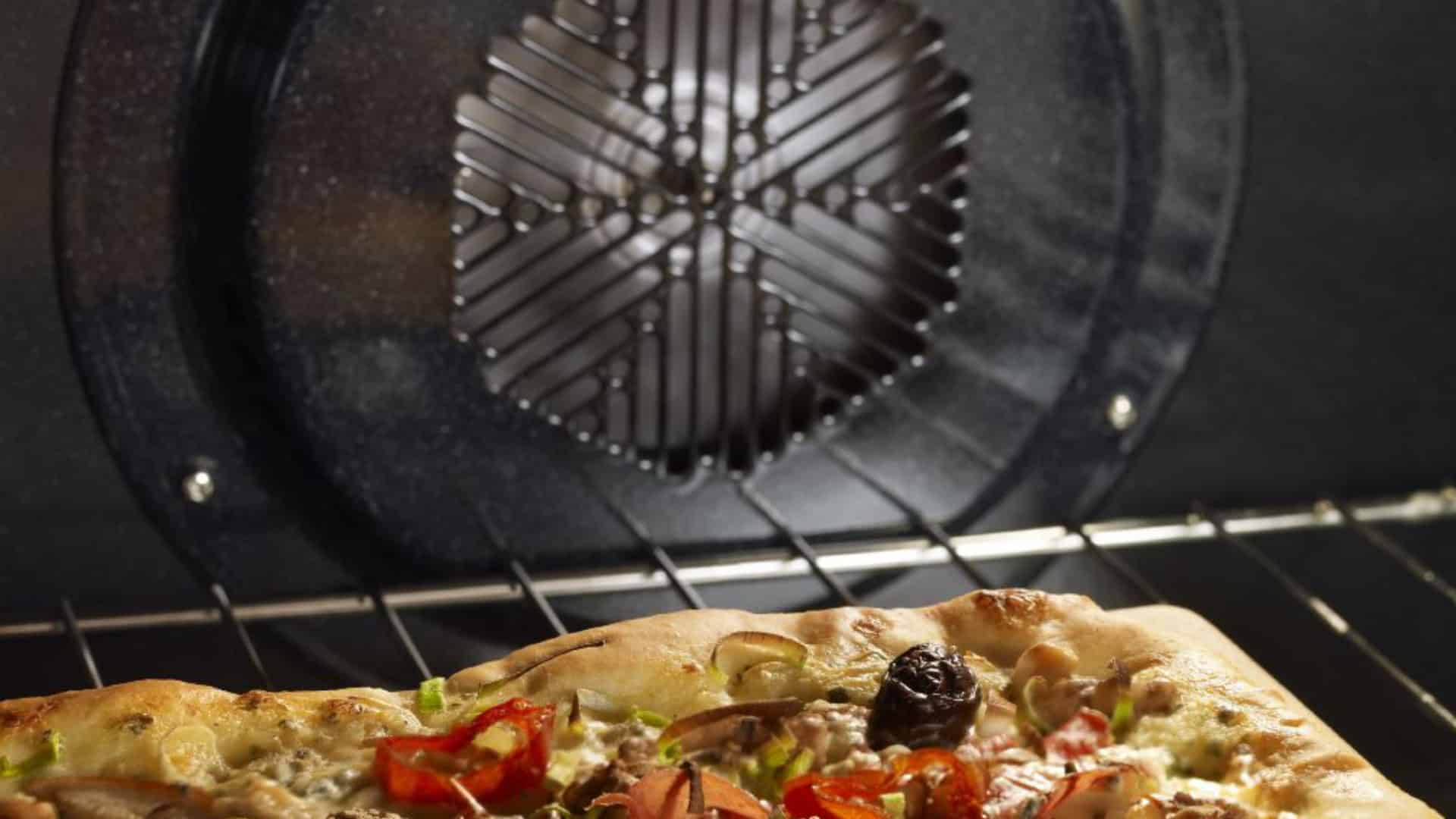
7 Steps to Fix a Whirlpool Oven Not Heating
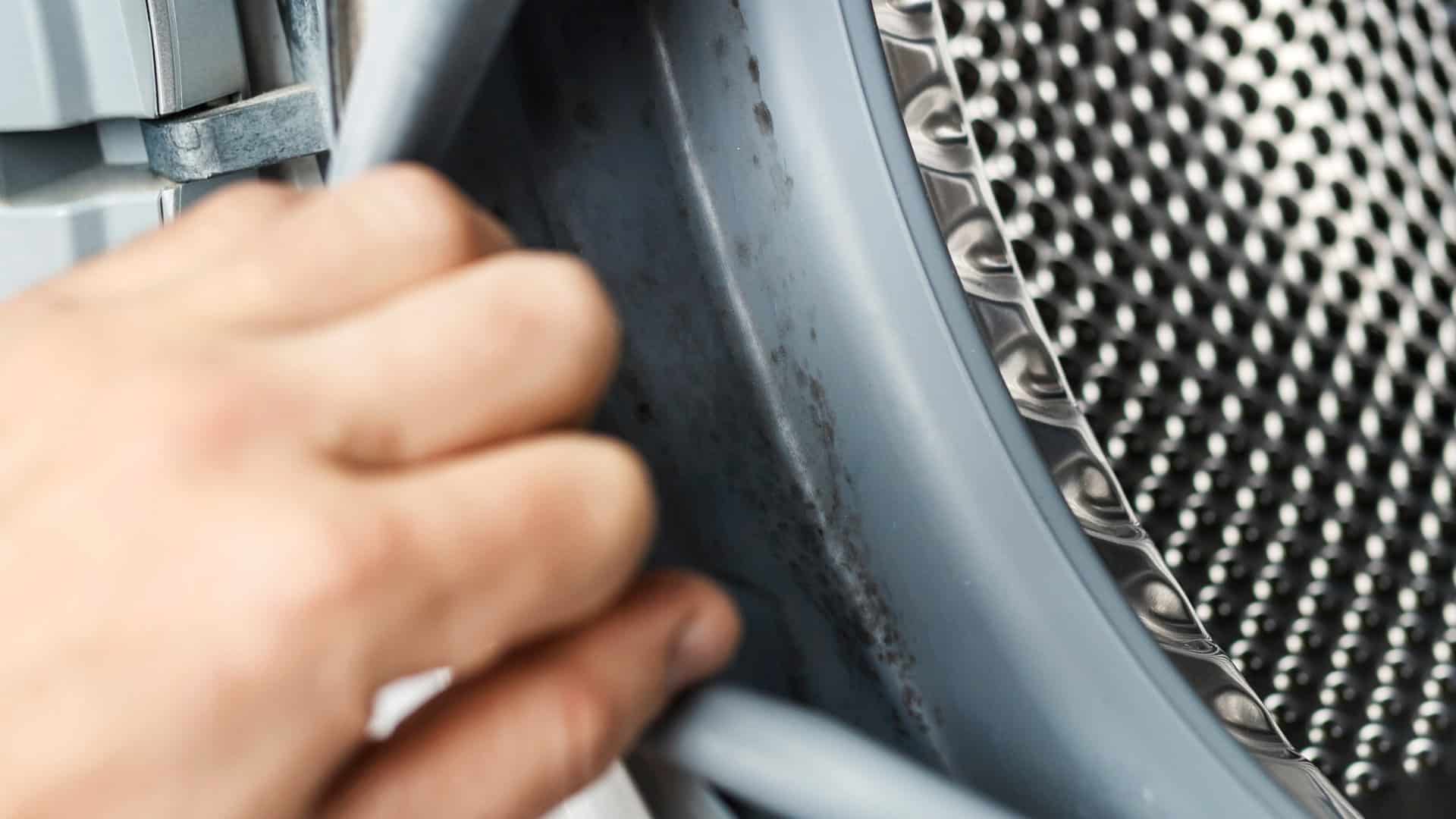
What to Do When Your Washing Machine Smells Like Rotten Eggs
